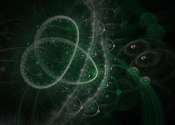Quantum scientists break aluminium 'monopoly' (Update)
A Majorana fermion, or a Majorana particle, is a fermion that is its own antiparticle. Discovering the Majorana was the first step, but utilizing it as a quantum bit (qubit) still remains a major challenge. An important step ...








